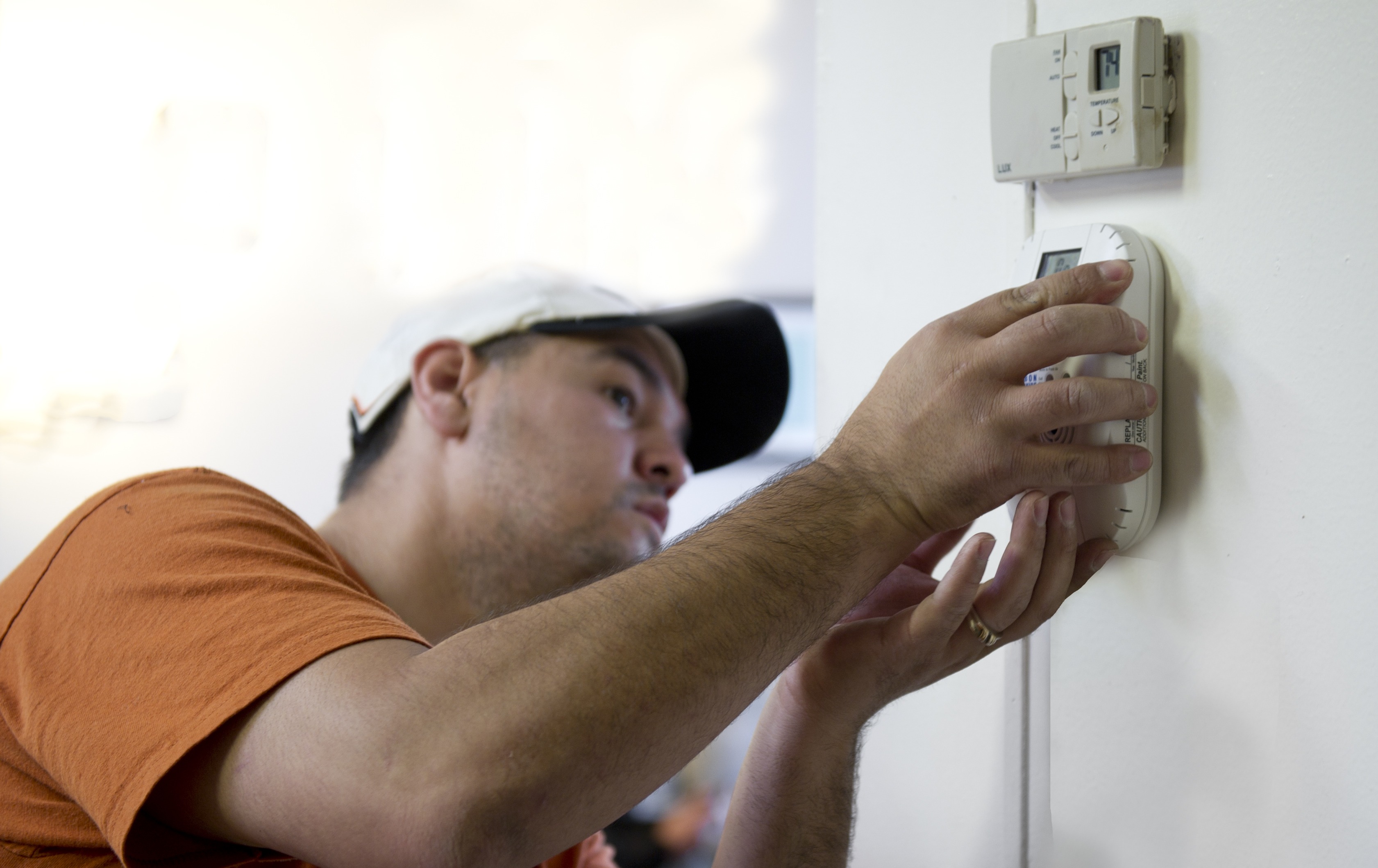Colorado is again leading the fight against climate change, this time tackling significant emissions from heating homes and businesses in the state. The Public Utilities Commission (PUC) approved Xcel’s first-of-its-kind Clean Heat Plan this May and will push Colorado’s largest utility to embrace electrification while rejecting false solutions in its clean heat portfolio.
Clean Heat Plans are a statutory requirement for utilities such as Xcel, thanks to Senate Bill 21-264, passed in 2021. The law requires the state’s largest utilities to reduce climate pollution from their gas systems by deploying “Clean Heat” resources whenever feasible, such as beneficial electrification and energy efficiency measures.
Beneficial electrification is the process of replacing direct fossil fuel use (e.g., propane, heating oil, gasoline) with electricity, reducing overall emissions and energy costs. Learn more about Clean Heat Plans here: https://puc.colorado.gov/cleanheatplans
The Clean Heat Plan is here thanks to intervention and fighting false solutions.
In their original Clean Heat Plan proposal, Xcel wanted to spend over $430 million in ratepayer funds on false solutions, including purchases of "recovered" methane and “certified” natural gas, through 2028 and experimenting with blending hydrogen into residential gas supplies in a "demonstration" project. A coalition of environmental groups strongly opposed this proposed spending and hydrogen pilot as intervenors in the Clean Heat proceeding.
The commission took intervenors’ recommendations seriously, directing Xcel to double down on the electrification initiatives that deliver the most significant benefits. This includes requiring all-electric new construction, incentives to switch from air conditioners to heat pumps, and stacking utility incentives with funds available through state and federal sources like the Inflation Reduction Act.
The commissioners approved a budget of up to $440 million for a portfolio that primarily consists of building electrification and energy efficiency measures, and that could reduce 725,000 tons of emissions annually by 2027. The final Clean Heat Plan is primarily based on a portfolio that Sierra Club and partner organizations developed that prioritized real solutions to lowering costs and emissions.
False solutions are any strategies or replacements for coal or fossil gas that are touted as cleaner and/or more efficient but, in actuality, are still harmful to public health and the planet and a costly distraction from proven building electrification and energy efficiency solutions that need to be pursued aggressively. Examples of false solutions include
Hydrogen blending: Hydrogen is not a reasonable replacement for gas in heating homes. The hydrogen proposed for use by Xcel is produced from methane using a process that still emits greenhouse gas emissions while being far less efficient than electrification.
"Recovered" methane is sourced from coal beds and mines or or captured from organic waste at landfills, livestock operations, and farms. The infrastructure needed to use this energy source would drive up costs and result in more dependence on aging gas pipelines.
“Certified” natural gas: This is gas that comes from “certified” suppliers, but it is still a fossil fuel that releases methane and other harmful pollutants into the air when burned, regardless of where it came from.
Read more about false solutions here: Avoid False Solutions for Clean and Healthy Buildings. Sierra Club helped stop the hydrogen blending project planned in Adams County.
The Cost of Not Taking Action
During deliberations, the commission agreed with the environmental groups that Xcel overstated the expected costs of electrification while ignoring the key benefits of removing fossil fuels from the market and within homes.
Gas-powered heating and cooling come with more than a monetary cost: burning gas in buildings is a serious threat to human health. Indoor NOx emissions from gas appliances exacerbate asthma attacks and increase respiratory problems, especially for children. Using less gas reduces outdoor air pollution and helps us tackle the climate crisis, while switching homes and businesses to all-electric improves indoor air quality, benefiting the health of Colorado residents and saving money on energy bills in the long term.
CHP and GIP are two acronyms with a lot of climate action packed in
Earlier this year, the Public Utilities Commission also approved Xcel’s first Gas Infrastructure Plan, calling on the utility to abandon "business as usual” and start reducing investments in fossil gas infrastructure or risk losing money as the state pushes toward a clean energy future that simply doesn’t need new gas pipelines to power Colorado.
These plans send a loud and clear message to Xcel and other utilities in Colorado—it is time to embrace clean energy and electrification and bid farewell to fossil fuels when it comes to powering our homes and businesses. As they go from plan to practice, we will continue to advocate for a strong and equitable transition to clean energy to power our state buildings.
Read more about the Gas Infrastructure Plan here: https://www.sierraclub.org/articles/2024/04/colorado-puc-adopts-landmark-gas-regulatory-decision
